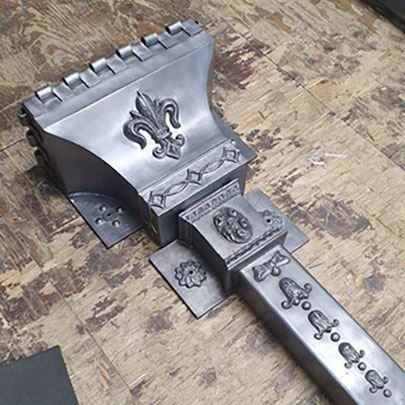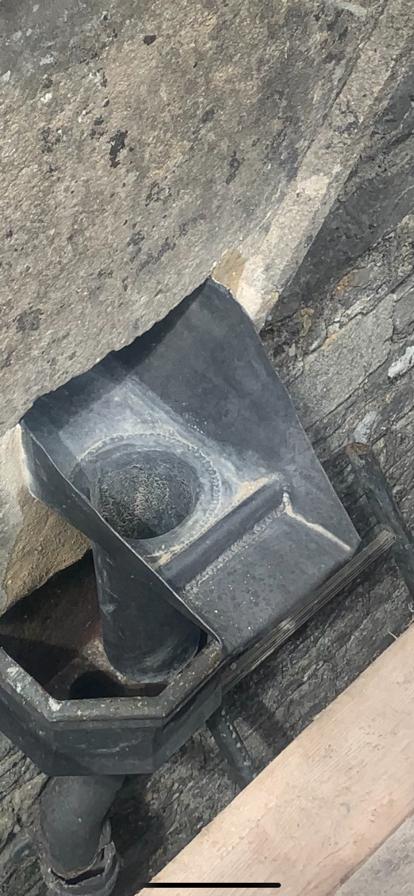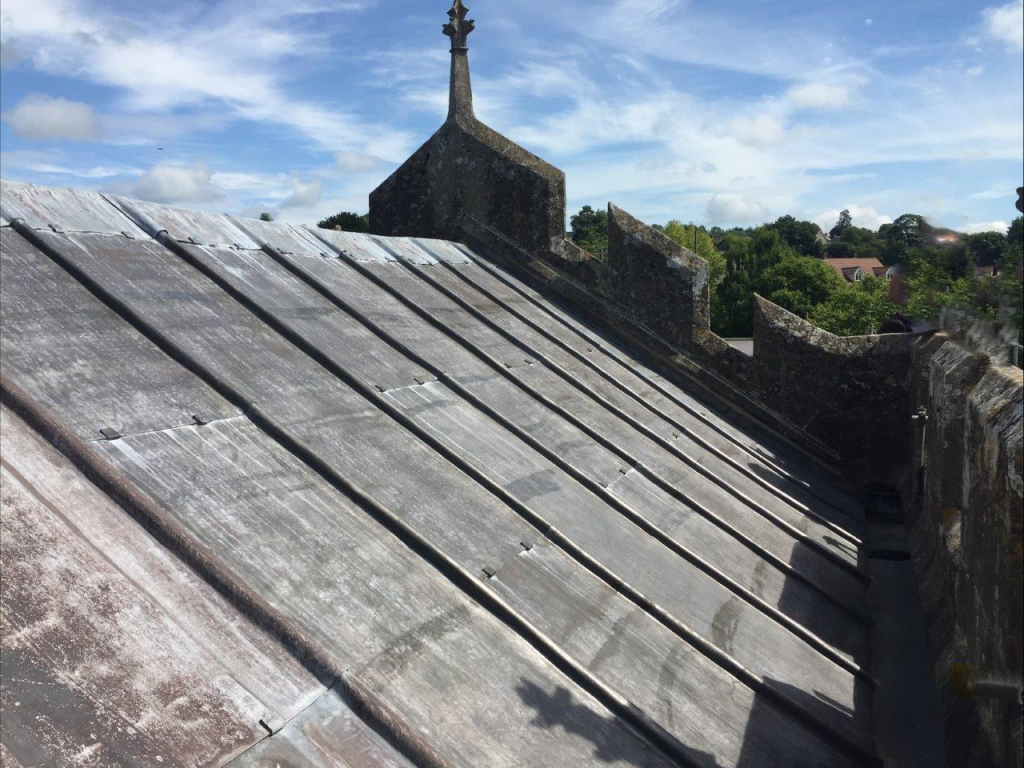We have been producing our own sand-cast lead since 2007 using our partially automated 7-metre-long casting table. Our casting methods allow us to accurately control the final thickness and uniformity of the lead, so that Code 6 to Code 10 are available to us.
When working on a roofing restoration project, we remove any damaged or aged lead and recycle it using our casting method, making this a sustainable product that can be re-used time and time again.
The origin of sand-cast lead
Lead is a natural compound found within the earth’s crust and trace amounts are found within soil, plants and water. It is only toxic when ingested (or inhaled), so one has to question the Roman method of lining their aqueducts with lead.
Mankind had most likely been using lead for over 6,000 years and lead mining probably pre-dates both the Bronze and Iron ages. When it is used properly, it is a durable and flexible material that is easy to work, has a low melting point and stands up well in extreme weather. Which is why lead sheets, gutters, hoppers and downpipes were used during the Norman period on many church and cathedral roofs.



Is sand-casting lead an endangered craft?
Heritage Crafts moved lead working off the endangered list in 2023 and put it back onto the “currently viable crafts” list. This means that they believe there are sufficient craftspeople to pass on the knowledge and skills of lead work to the next generation.
However, as there are now only three UK based companies, including ourselves, that are capable of casting sheets of lead for the building trade in this way, we believe this is once again an endangered craft.
Because there are so few craftspeople remaining who hold the knowledge and expertise to craft sheets of lead in way we do, we believe this is a dying craft and should be re-added to the Heritage Crafts Red List of Endangered Crafts.
According to this list, some of our endangered crafts in the UK are bagpipe making, fairground and canal boat art, split cane rod and corn dolly making. The critically endangered crafts include clog, sporran and glass eye making, horsehair weaving and silver spinning. Whereas the now extinct crafts for 2023 consist of cricket ball and lacrosse stick making, gold beating, mould and deckle and mouth-blown sheet glass making.
We will continue to try and pass on our craft of lead making to the next generation, but this will only be possible if our apprentices turn up for work on time!
Why choose West Country Tiling
Contact us if you have a complex or historical roofing project that requires an experienced team. Please get in touch on 01373 462 224 or by emailing us on info@westcountrytiling.com.
